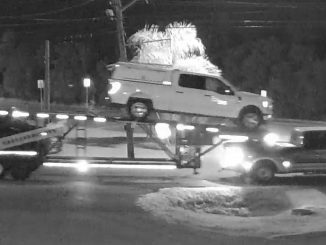
You may know how and when to plant your pansies and petunias, but do you think about a little stretching exercise before heading out into the garden?
LSU AgCenter horticulturist Bob Souvestre says that’s just one of the important “healthy gardening” tips you should consider before starting your spring chores.
After a wet and cold winter, gardeners are anxious to get back into their yards, and with the recent warmer temperatures, many may have started spring gardening activities already. While experienced gardeners know what to do in their landscapes when spring rolls around, they may not take care of themselves as well as they take care of their flower beds, experts say.
“I always recommend healthy gardening,” said LSU AgCenter horticulturist Bob Souvestre. “Always put on sunscreen – at least an SPF of 30 and wear protective clothing.”
Long sleeves and hats that cover ears, neck and forehead can protect against the sun and mosquitoes.
Souvestre points out that gardening also can put a strain on your hands, back and other muscles. It can aggravate ailments such as carpel tunnel syndrome, tendonitis or arthritis.
But stretching before shoveling, weeding or other garden activities can make it easier on individuals with these ailments and help reduce the risk of injuries, he says.
Ergonomic gardening tools also can alleviate the stress of gardening for all gardeners, according to the experts.
“These tools allow the person to do the same job with less effort,” Souvestre said.
Gardening can be hard on older individuals, but there are items that can help reduce the strain. Gardening aids such as foam pads and kneelers protect knee joints and help gardeners stand up after kneeling in a flower bed, Souvestre says.
Container gardens also are a good option for older gardeners who still want to garden but find working in the yard too strenuous, he advises.
Another tip: “Work in the morning or late afternoon when the weather is most comfortable,” Souvestre said. “And realize what your body can do – and don’t stress it.”
Besides hurting themselves, gardeners need to think about not putting their homes at risk. That’s why experts now emphasize “fire-wise landscaping.”
Researchers with the LSU AgCenter are planning fire-wise landscaping demonstrations at the Hammond Research Station.
“We see it as an opportunity to show you good techniques, which plants to avoid, which plants to use, how to apply your mulch and how you can arrange your landscape so it’s not conducive to fire,” explained research station coordinator Dr. Regina Bracy.
For example, plants such as the wax myrtle burn rapidly and shouldn’t be placed against a house.
To see more about happy and healthy gardening or a variety of other topics ranging from food and health to family and home, visit www.lsuagcenter.com.




Be the first to comment